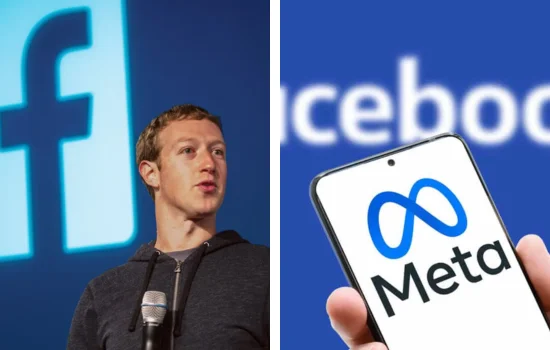India’s parliamentary standing committee on communications and information technology is set to summon Meta, the parent company of Facebook, Instagram, and WhatsApp, following remarks made by CEO Mark Zuckerberg about the role of the company’s platforms in elections, including in India. The announcement, made by BJP MP Pratap Simha, has ignited debate about the influence of social media giants in the democratic process and the accountability of tech platforms in India’s electoral landscape.
Zuckerberg’s Remarks and Their Implications
Mark Zuckerberg, in a recent statement, emphasized Meta’s commitment to combating misinformation and ensuring election integrity globally. He mentioned India as one of the countries where Meta’s platforms play a significant role in political discourse, particularly during elections.

Zuckerberg’s comments have sparked questions about how Meta monitors and regulates content related to elections in India, a nation with a massive social media user base of over 500 million. Critics argue that while Meta claims to act against fake news and hate speech, its platforms have often been accused of amplifying misinformation and enabling partisan narratives.
The Parliamentary Panel’s Agenda
The parliamentary panel’s decision to summon Meta reflects growing concerns in India over the role of social media in influencing public opinion and electoral outcomes. According to BJP MP Pratap Simha, the panel will question Meta representatives about:
- Content Moderation: How Meta ensures the removal of fake news, misinformation, and hate speech during elections.
- Political Advertising: The transparency and regulation of paid political advertisements on Facebook and Instagram.
- Algorithmic Bias: Whether Meta’s algorithms favor specific political ideologies or entities, intentionally or unintentionally.
- Data Privacy: How user data is safeguarded during election periods to prevent manipulation by external entities.
Simha stated, “Social media platforms must be transparent about their policies and operations. Their influence on democracy is undeniable, and we need to ensure they do not undermine India’s electoral process.”
Concerns About Social Media and Elections
India, the world’s largest democracy, has witnessed an unprecedented rise in the use of social media platforms for political campaigning, voter outreach, and public discourse. However, the rapid growth of these platforms has raised concerns about their potential misuse:
- Spread of Misinformation: Fake news and disinformation campaigns often go viral during elections, misleading voters and creating social tensions.
- Hate Speech: Meta has faced criticism for not acting swiftly against hate speech that incites violence or promotes communal discord.
- Political Manipulation: Allegations of foreign interference and misuse of data to influence voter behavior have surfaced in multiple countries, including India.
- Transparency Issues: A lack of clarity on how Meta’s content moderation and advertising policies operate has fueled skepticism about its impartiality.
Meta’s Response
Meta has not yet issued an official statement regarding the parliamentary panel’s decision. However, the company has previously highlighted its efforts to enhance transparency and tackle harmful content during elections. Key measures include:
- Deploying artificial intelligence (AI) to detect and remove fake accounts and harmful content.
- Partnering with fact-checking organizations to identify and label misinformation.
- Establishing an Ad Library to track political advertisements and their sponsors.
Despite these efforts, critics argue that enforcement is inconsistent and lacks accountability.
Growing Scrutiny of Big Tech in India
The move to summon Meta is part of a broader effort by Indian authorities to hold Big Tech companies accountable. Over the past few years, India has implemented new IT regulations to increase oversight of social media platforms. These include:
- Intermediary Guidelines and Digital Media Ethics Code (2021): Requiring platforms to appoint grievance officers and remove flagged content within a specified timeframe.
- Transparency Reports: Mandating periodic reports on content takedown requests and compliance.
The parliamentary panel’s inquiry into Meta could set a precedent for further regulatory action and serve as a warning to other social media giants operating in India.
Political Reactions
The decision has sparked mixed reactions across the political spectrum. While the ruling BJP has supported greater scrutiny of Meta, opposition parties have expressed concerns about whether the government itself may misuse such inquiries to suppress dissent and regulate narratives critical of its policies.
A senior Congress leader remarked, “The influence of social media platforms must be checked, but the government must also ensure that such moves do not turn into a tool for censorship.”
Conclusion
The parliamentary panel’s decision to summon Meta underscores the growing importance of social media platforms in shaping political discourse and their responsibility to uphold the integrity of democratic processes. As India prepares for upcoming elections, the scrutiny on Big Tech’s role in influencing public opinion is only set to intensify.
For Meta, the inquiry represents a crucial test of its commitment to transparency, neutrality, and accountability in one of its largest and most influential markets. The outcome could have far-reaching implications, not just for the company but also for the broader relationship between technology and democracy in India.

Hello, I’m Kapil Kumar, a seasoned SEO expert and blogger at WinnersList.in. My mission is to spotlight exceptional individuals and organizations across various domains. Through curated lists, profiles, and inspiring stories, I aim to celebrate outstanding achievements and inspire the next generation of champions. Join me in this journey.
